
Filter News
Area of Research
- (-) Biology and Environment (50)
- (-) Supercomputing (67)
- Advanced Manufacturing (5)
- Building Technologies (4)
- Clean Energy (144)
- Computational Biology (1)
- Computer Science (3)
- Electricity and Smart Grid (3)
- Energy Sciences (1)
- Functional Materials for Energy (1)
- Fusion and Fission (9)
- Fusion Energy (2)
- Isotopes (1)
- Materials (66)
- Materials for Computing (9)
- National Security (23)
- Neutron Science (22)
- Nuclear Science and Technology (4)
- Quantum information Science (2)
- Sensors and Controls (2)
News Topics
- (-) Buildings (6)
- (-) Coronavirus (22)
- (-) Critical Materials (4)
- (-) Frontier (28)
- (-) Grid (7)
- (-) Physics (8)
- (-) Security (5)
- (-) Sustainable Energy (35)
- 3-D Printing/Advanced Manufacturing (13)
- Advanced Reactors (2)
- Artificial Intelligence (40)
- Big Data (25)
- Bioenergy (49)
- Biology (75)
- Biomedical (28)
- Biotechnology (14)
- Chemical Sciences (14)
- Clean Water (11)
- Climate Change (51)
- Composites (5)
- Computer Science (104)
- Cybersecurity (9)
- Decarbonization (22)
- Energy Storage (11)
- Environment (102)
- Exascale Computing (24)
- Fusion (2)
- High-Performance Computing (51)
- Hydropower (8)
- Isotopes (2)
- Machine Learning (18)
- Materials (24)
- Materials Science (22)
- Mathematics (3)
- Mercury (7)
- Microscopy (16)
- Molten Salt (1)
- Nanotechnology (16)
- National Security (9)
- Net Zero (3)
- Neutron Science (16)
- Nuclear Energy (5)
- Partnerships (5)
- Polymers (4)
- Quantum Computing (19)
- Quantum Science (24)
- Renewable Energy (1)
- Simulation (23)
- Software (1)
- Space Exploration (3)
- Summit (46)
- Transformational Challenge Reactor (1)
- Transportation (8)
Media Contacts

The U.S. Department of Energy’s Innovative and Novel Computational Impact on Theory and Experiment, or INCITE, program is seeking proposals for high-impact, computationally intensive research campaigns in a broad array of science, engineering and computer science domains.

Twenty-seven ORNL researchers Zoomed into 11 middle schools across Tennessee during the annual Engineers Week in February. East Tennessee schools throughout Oak Ridge and Roane, Sevier, Blount and Loudon counties participated, with three West Tennessee schools joining in.
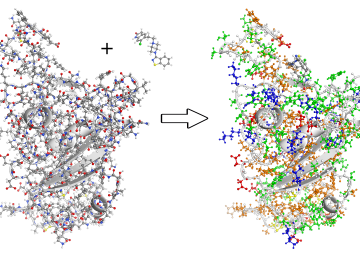
To better understand the spread of SARS-CoV-2, the virus that causes COVID-19, Oak Ridge National Laboratory researchers have harnessed the power of supercomputers to accurately model the spike protein that binds the novel coronavirus to a human cell receptor.
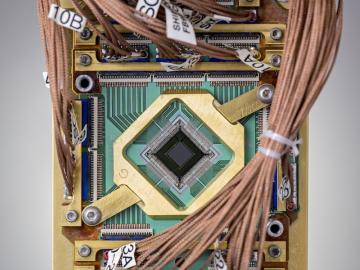
Since the 1930s, scientists have been using particle accelerators to gain insights into the structure of matter and the laws of physics that govern our world.

Six scientists at the Department of Energy’s Oak Ridge National Laboratory were named Battelle Distinguished Inventors, in recognition of obtaining 14 or more patents during their careers at the lab.
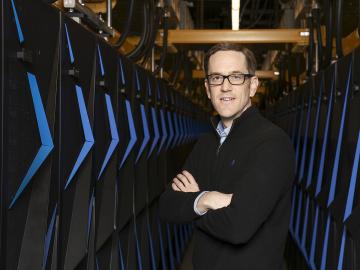
The annual Director's Awards recognized four individuals and teams including awards for leadership in quantum simulation development and application on high-performance computing platforms, and revolutionary advancements in the area of microbial
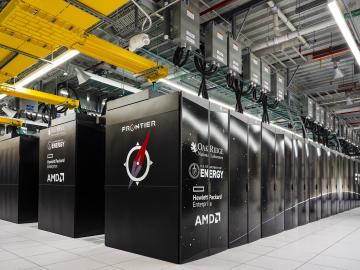
A multi-institutional team, led by a group of investigators at Oak Ridge National Laboratory, has been studying various SARS-CoV-2 protein targets, including the virus’s main protease. The feat has earned the team a finalist nomination for the Association of Computing Machinery, or ACM, Gordon Bell Special Prize for High Performance Computing-Based COVID-19 Research.
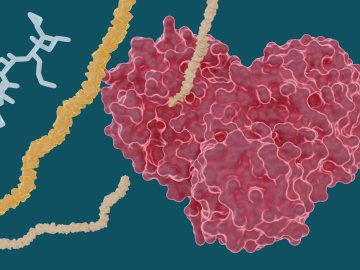
Experiments led by researchers at ORNL have determined that several hepatitis C drugs can inhibit the SARS-CoV-2 main protease, a crucial protein enzyme that enables the novel coronavirus to reproduce.
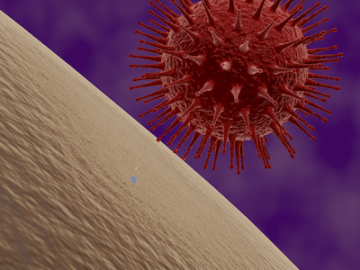
NellOne Therapeutics has licensed a drug delivery system from the Department of Energy’s Oak Ridge National Laboratory that is designed to transport therapeutics directly to cells infected by SARS-CoV-2, the virus causing COVID-19.
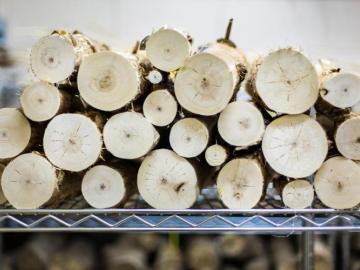
Popular wisdom holds tall, fast-growing trees are best for biomass, but new research by two U.S. Department of Energy national laboratories reveals that is only part of the equation.


